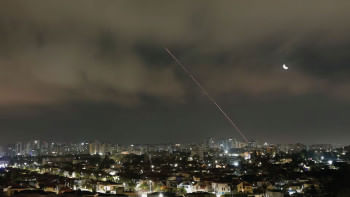Dhaka ignored early warning on Rohingya influx

Bangladesh had prior information about the Rohingya influx in 2017 as the Bangladesh embassy to Myanmar had written a letter to Dhaka, recommending strengthening border.
However, there was no national consensus achieved and the government made no firm decision regarding that, said Sufiur Rahman, the then Bangladesh ambassador to Myanmar.
He shared the information at a seminar titled "Rohingya, Rakhine, and the Context of Myanmar: Bangladesh's Risks", organised by the Neeti Gobeshana Kendra, a think tank, at Jatiya Press Club yesterday.
In 2017, about 750,000 Rohingyas fled a military campaign in Rakhine State and sheltered in Cox's Bazar. Since then, no repatriation took place despite several attempts. Current number of Rohingya is more than a million and has created environmental, financial, security and diplomatic challenges.
"We provided specific information from the embassy. The first attack on the Rohingyas occurred on August 25, 2017. I had sent a letter to Dhaka on August 11, 2017. The title of the letter was 'A New Phase of Volatility in Rakhine and Its Possible Implications," said Sufiur Rahman, now a senior research fellow at the South Asia Institute of Peace and Governance, NSU.
He wrote that Bangladesh might face another wave of Rohingya influx from Buthidaung and Rathedaung of Myanmar's Rakhine State and had recommended that Myanmar be urged -- through the international community -- to reduce tensions in Northern Rakhine.
"At the same time, I suggested taking all necessary steps to prevent a Rohingya influx...," he said.
He shared that on August 25, he attended a meeting with UN officials and proposed the declaration of a safe zone in Rakhine. Due to opposition from Russia and China, a safe zone could not be declared internationally. However, Bangladesh did incorporate the safe zone concept into its state policy at the time.
According to Sufiur Rahman, the decision-making process in Bangladesh in 2017 was flawed and there was no national consensus. Sadly, this lack of consensus still persists in the country.
Addressing the seminar, political scientist Dr Dilara Chowdhury said the previous governments did not make efforts to establish communication with the Arakan Army. Without engaging with them, Rohingya repatriation is not possible, she added.

 For all latest news, follow The Daily Star's Google News channel.
For all latest news, follow The Daily Star's Google News channel. 



Comments